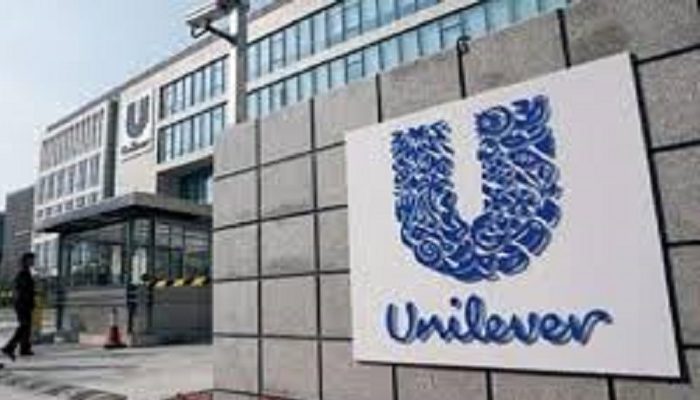Q1,2025 : Unilever’s Strategic Approach to Sustaining Industry Leadership

Unilever, a leading company in Nigeria, has successfully sustained its industry leadership through a strategic approach that incorporates various key issues. The company’s strong focus on innovation and strategic thinking has enabled it to anticipate and respond to emerging trends, opportunities, and challenges in the industry.
By investing in research, development, and innovation, Unilever has been able to stay ahead of the competition and provide innovative products and services that meet the evolving needs of customers. The company’s ability to make informed decisions about its direction, growth, and innovation has been crucial to its success. By developing a competitive business strategy that enables it to compete effectively in the market, Unilever has built a strong brand and maintained its market share.
Unilever’s focus on differentiation and cost leadership has enabled it to innovate and improve its products, which has helped it stay ahead of competitors. Additionally, the company has pursued a diversification strategy, expanding its product portfolio to meet changing consumer preferences. The company’s product development strategy has enabled it to introduce new products and services that cater to different market segments, increasing its market share and revenue.
| Description | Mar 2025 (₦’000) | Mar 2024 (₦’000) |
| — | — | — |
| Revenue | 46,975,814 | 32,315,734 |
| Cost of Sales | (28,122,838) | (18,814,597) |
| Gross Profit | 18,852,976 | 13,501,137 |
| Selling and Distribution Expenses | (1,711,883) | (1,400,122) |
| Marketing and Administrative Expenses | (9,088,599) | (8,287,207) |
| Impairment Write Back on Trade & Other Receivables | 140,092 | 3,884 |
| Other Income | 76,890 | 25,314 |
| Operating Profit/(Loss) | 8,269,476 | 3,843,006 |
| Finance Income | 2,655,600 | 1,999,739 |
| Finance Cost | (172,066) | (1,483,462) |
| Net Finance Income | 2,483,534 | 516,277 |
| Profit Before Taxation | 10,753,010 | 4,359,283 |
| Taxation | (5,200,577) | (1,002,855) |
| Profit for the Period | 5,552,433 | 3,356,428 |
The company’s strong culture of innovation and entrepreneurship enables it to identify new opportunities and create new products and services. Unilever’s focus on research and development has enabled it to stay ahead of competitors and drive growth and innovation. The company has also pursued various strategy methods, including organic development, acquisitions, and strategic alliances, adapting to changing market conditions and pursuing different approaches to stay competitive.
Unilever’s corporate parenting approach enables it to add value to its businesses and create parenting advantage. The company’s ability to manage its portfolio of businesses effectively has enabled it to allocate resources efficiently and drive growth and innovation. By making informed decisions about its direction, growth, and innovation, Unilever has been able to sustain its industry leadership and remain a dominant player in its industry.
Overall, Unilever’s strategic approach has enabled the company to stay ahead of competitors and drive growth and innovation. The company’s ability to adapt to changing market conditions and pursue different strategy methods has enabled it to maintain its industry leadership and remain a key player in its industry.
The strategic choices of Unilever are justified by its impressive financial performance. The company’s focus on innovation and product development has enabled it to stay ahead of competitors and drive growth. Unilever’s revenue increased by 45% from ₦32.32 billion to ₦46.98 billion, indicating the success of its innovation strategy.
The company’s gross profit rose by 40% from ₦13.50 billion to ₦18.85 billion, reflecting its ability to maintain pricing power and manage costs. Unilever’s focus on differentiation and cost leadership has enabled it to innovate and improve its products, which has helped it stay ahead of competitors.
Unilever’s profit for the period increased by 65% from ₦3.36 billion to ₦5.55 billion, driven by strong revenue growth and effective cost management. The company’s operating profit more than doubled from ₦3.84 billion to ₦8.27 billion, showcasing improved operational efficiency.
The company’s finance income increased significantly from ₦1.99 billion to ₦2.66 billion, contributing to its bottom line. Unilever’s net finance income more than quadrupled from ₦516.28 million to ₦2.48 billion.
Overall, Unilever’s strategic choices have enabled it to drive growth, improve profitability, and stay ahead of competitors. The company’s financial performance reflects the success of its strategic approach, and its ability to adapt to changing market conditions and pursue different strategy methods has enabled it to maintain its industry leadership.




